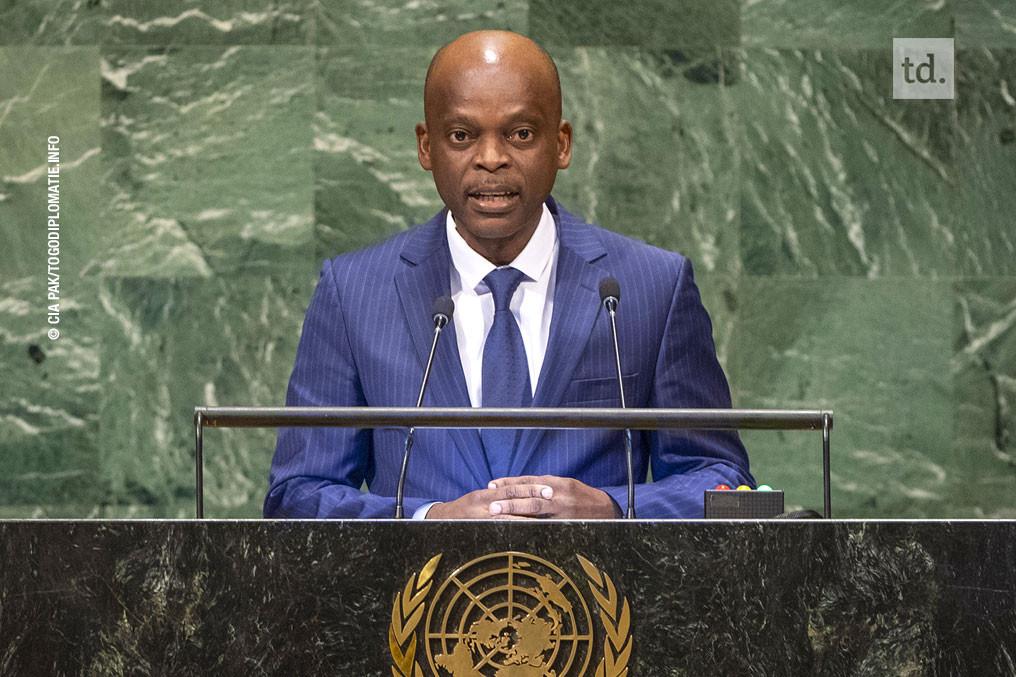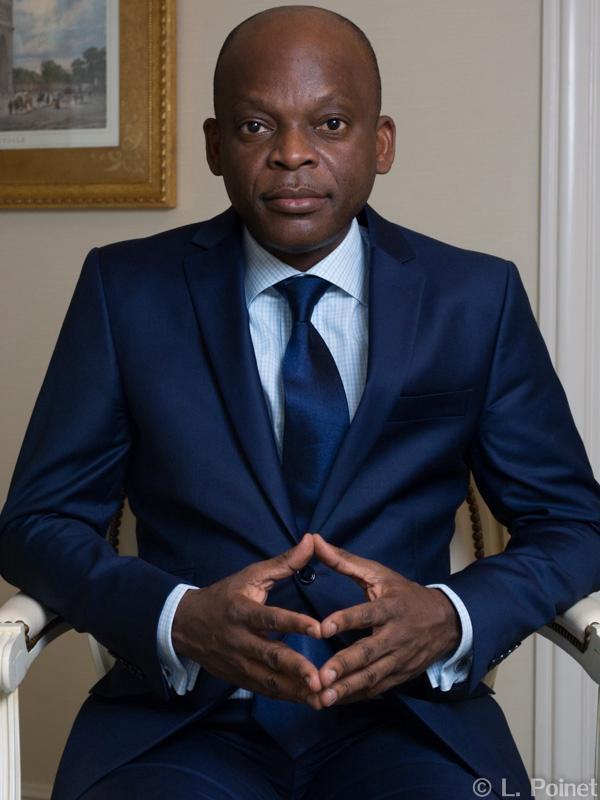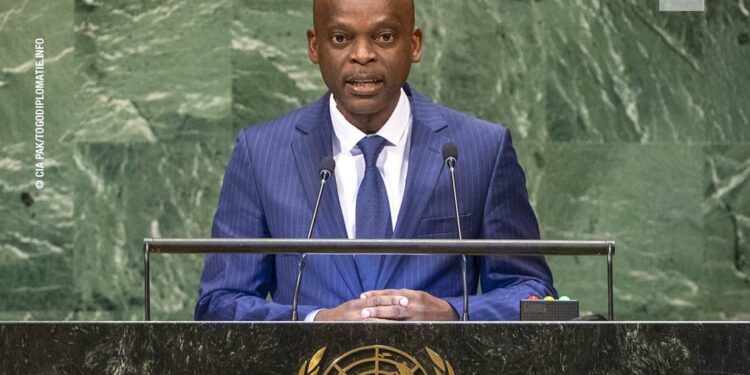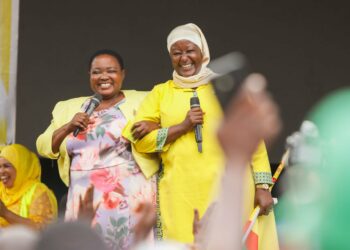In 2013, a significant milestone was reached in the history of Pan-Africanism when the African Union (AU) launched Agenda 2063. This ambitious plan aims to transform Africa into a sovereign, peaceful, and prosperous continent that plays a vital role on the global stage by the year 2063. At the core of Agenda 2063 is the idea of pan-Africanism, which strives to strengthen connections among African nations. The initiative focuses on fostering integrated development across the continent, with the overarching goal of making the 21st century a time of renewed growth and African renaissance. In pursuit of the determined objectives delineated in Agenda 2063, a select cohort of nations across the continent, harmonizing their endeavours with the African Union, has judiciously positioned themselves within designated priority domains to champion and orchestrate pivotal projects of profound significance.
Much like Ghana, which has taken a prominent stand in the movement for reparations, and Kenya, which tirelessly advocates for climate justice, Côte d’Ivoire has been tasked to be in charge of the second decade of Agenda 2063. In a significant stride towards regional integration, Togo has emerged as a pivotal leader in the initiative concerning the African Single Air Transport Market.
Noteworthy is the extraordinary development in February 2021, when the Togolese government successfully urged the African Union (AU) Conference of Heads of State and Government to designate the period from 2021 to 2031 as the “Decade of African Roots and the African Diaspora.”
The inception of this Decade has rapidly positioned itself as a robust framework designed to foster resounding initiatives that strengthen the connections between Africa and its diaspora. The African Union (AU) defines the diaspora as comprising individuals of African descent residing outside the continent, regardless of their citizenship or nationality, who possess a willingness to actively contribute to the development of Africa and the principal aims of the African Union.
Among the most noteworthy undertakings within this framework is the organization of the 9th Pan-African Congress, a significant event entrusted to Togo in accordance with the Decision Assembly/AU/Dec.22(XXXVI) reached during the Conference of Heads of State and Government of the AU, held from February 18 to 19, 2023, in Addis Ababa, Ethiopia.
The Pan-African Congress thus resonates the esteemed tradition of pan-African gatherings that have been advocated since time immemorial by illustrious figures such as Henry Sylvester Williams, W.E.B. Du Bois, and Kwame Nkrumah. These gatherings signify a collective commitment to uniting diverse African populations and addressing shared challenges, reinforcing the spirit of solidarity and cooperation that defines the African identity.
The primary objective of the pan-African movement is to foster a historical continuity while galvanizing Africa and its peoples around contemporary challenges. Pan-Africanism is a dynamic movement that has evolved to address the pressing issues of contemporary era. Historically, it has tackled critical concerns such as the decolonisation of Africa, inequities in the justice system, the pursuit of universal dignity, the eradication of apartheid, and the quest for economic integration.
In the present day, while enduring issues of justice and human rights remain paramount, new themes are emerging as pivotal to the movement. A significant focus is the reform of international institutions, particularly the United Nations Security Council. Since the advent of independence, African leaders have undertaken numerous initiatives advocating for these reforms, reflecting a commitment to aligning global governance with Africa’s aspirations and challenges.

Voices from Africa and the Caribbean, particularly those of intellectuals and opinion leaders within the African diaspora, resonate with a unified demand: the reform of the United Nations and all multilateral institutions that govern international cooperation. This call for transformation seeks to establish a new world order that prioritises respect for national sovereignty.
Recognising the pressing consensus on the necessity to reform international institutions and address the quest for justice in global governance, Togo, in collaboration with the African Union, has initiated the 9th Pan-African Congress. The theme of the gathering is: “Renewal of Pan-Africanism and Africa’s Role in Reforming Multilateral Institutions: Mobilising Resources and Reinventing Our Agency.”
To enhance the significance of the 9th Pan-African Congress and ensure inclusivity and engagement, the AU’s High Committee, established to advance the Agenda of the Decade, has conducted six pre-congress events across North Africa, East Africa, West Africa, Central Africa, Southern Africa, and the Diaspora. These gatherings aim to galvanise support and lay the groundwork for the upcoming monumental event.
South Africa hosted the pre-congress for Southern Africa on December 4-5, 2023, themed “Pan-Africanism, Science, Knowledge, and Technology.” Following this, Mali sponsored the West Africa pre-congress on March 14-15, 2024, concentrating on “Diaspora, Afro-descendants, and Development.” Morocco then organised the North Africa pre-congress on April 18, 2024, exploring the intricate dynamics of “Pan-Africanism and Migration.” The Republic of Congo facilitated the Central Africa pre-congress on May 24, 2024, accentuating “Economic Pan-Africanism and African Emergence.”, Tanzania then held the East Africa pre-congress on July 6, 2024, dedicated to examining “Africanity, Cultures, Education, and Pan-African Identity.” The culmination of these pre-congresses occurred in Brazil-Salvador on August 29-31, 2024, highlighting critical issues of “Pan-Africanism, Memory, Restitution, Reparation, and Reconstruction.”
During the six pre-congresses, distinguished political figures, business leaders, journalists, scholars, opinion leaders, cyber activists, union representatives, civil society members, artists, and youth converged to affirm and celebrate the principles of Pan-Africanism. They engaged in discourses covering critical issues such as migration, sustainable development, resource mobilisation, intra-African trade, memorial restitution, reparations for Africa and its peoples, the repatriation of Africa’s cultural artifacts, and the diaspora’s role in Africa’s emancipation. It was collectively acknowledged that there is an urgent need to cultivate and advance, within the renaissance of Pan-Africanism, an endogenous philosophy centered in Africa: the Ubuntu Philosophy.
The Diaspora pre-congress held in Salvador Bahia—acknowledged as Brazil’s most authentically African locale—convened esteemed participants from over 50 nations, presenting a significant opportunity to confront the historical injustices suffered by African peoples and to advocate for the urgent need of reparations. This discursive assembly culminated in a unanimous consensus: only through a cohesive and united front of Africa and its global diaspora can the continent’s cause be duly advanced on the international stage and the critical matter of reparations addressed with the sobriety it deserves.
A pivotal endorsement emerging from the pre-congress in Brazil was the proposal by participants to designate Salvador, Bahia, as the seat of Africa’s sixth region, representing the Diaspora. As a founding member of the BRICS bloc, Brazil championed the principles of a decentralised and polycentric world while advocating for significant reforms in global governance. Brazil officially assumed the presidency of the G20 on December 1, 2023, after taking over the mantle from India. Following the G20 summit held on November 18-19, 2024 in Rio de Janeiro, Brazil ceremoniously passed the gavel to South Africa’s Cyril Ramaphosa, signaling his ascension as the next patron of the Group of Twenty- a milestone for Africa.

Brazil stands as the premier nation of the African diaspora, boasting the largest population of African descent outside the continent. Notably, over 70% of Bahia’s population, with Salvador as its capital, identifies as Afro-Brazilian. The birth of a sixth regional seat for the African diaspora in Salvador could significantly enhance the coordination of Pan-African initiatives, serving as a pivotal bridge between Africa and global communities of African descent.
The forthcoming 9th Pan-African Congress in Lomé has engaged various regions of Africa through a strategic procedural framework, mobilising diverse elements of the African community. Following the historic launch ceremony on May 22, 2023, this momentum has propagated through Africa’s six regions, with regional pre-congresses emerging as vital moments of profound mobilisation centered on the Pan-African ethos.
The prime merit of this process lies in its capacity to unify diverse energies and ongoing Pan-African initiatives across campuses, streets, and communities. Pan-Africanism, by its very nature, is pluralistic. Nonetheless, the pending 9th Pan-African Congress, with its date to be announced, presents a pivotal opportunity to stand around unifying ideals and shared objectives. This congress serves as a historic platform for unprecedented mobilisation on critical issues, including the reform of international institutions, reparations for Africa and its peoples, the restitution of African cultural artifacts, and the collective memory of the continent.
Pan-Africanism expresses not only the collective memory of past struggles but also a contemporary framework for existing challenges and a consciousness for future battles—both for Africa and its diaspora.
Professor Robert DUSSEY
Minister of Foreign Affairs, African Integration of Togo
Do you have a story in your community or an opinion to share with us: Email us at editorial@watchdoguganda.com













